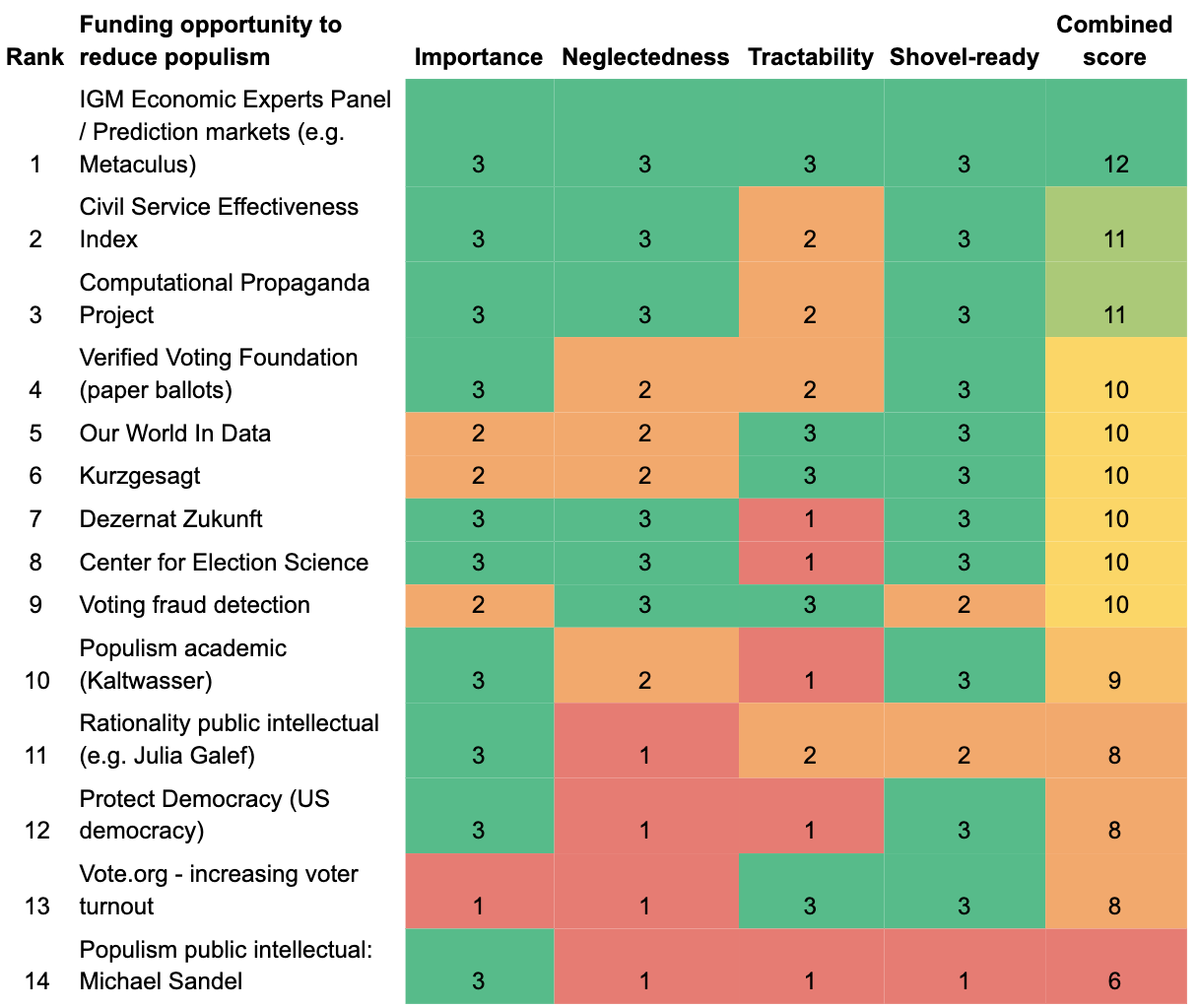Manuel Allgaier asked “Are there effective ways to help Ukrainians right now?” That is very interesting, but the people who ask me for donation opportunities of this sort – in light of the war – are more interested in (or open to) highly leveraged opportunities that are more likely to still be neglected and that have more accessible “surface area” as it were. I can find numerous EA Forum articles on high-level questions, but I can’t find concrete recommendations of shovel-ready funding opportunities. Does anyone know of any?
I’ve gone through these tag pages:
- Global governance
- Great power conflict
- Institutional decision-making
- Totalitarianism
- Risks from malevolent actors
(I’ve also skimmed the relevant sections of this 80,000 Hours post and gone through the Open Phil grant database.)
I think the first two of these tags are closest to what I would consider maximally effective in this space and maybe more generally.
Powerful global governance could make it much more realistic to institute such things as:
- global regulatory markets for AI,
- agreed-upon peaceful processes for resolving conflicts,
- moratoriums on dangerous AI, gain-of-function (and other) research,
- mandatory insurance to internalize the externalities of less dangerous research, and
- moratoriums on hard-to-reverse decisions such as intergalactic spreading, terraforming, and panspermia pending the resolution of all the foundational ethical and game-theoretic questions.
The problem is probably not just the strategic question of how we might put a Leviathan in charge of the whole world, but rather the question what form of governance has some of these benefits without being susceptible to being ursurped by a malevolent dictator.
Less legible, decentralized solutions are probably safer here. They are also a better model for the sort of governance that we’ll need when the lightspeed limit will make it hard (or very slow) to centrally coordinate all of our civilization.
Does anyone know of organizations or other funding opportunities who are researching anything broadly in this direction, seem competent, and need money?
Thank you!


The Simon Institute for Longterm Governance (SI) is developing the capacity to do a) more practical research on many of the issues you're interested in and b) the kind of direct engagement necessary to play a role in international affairs. For now, this is with a focus on the UN and related institutions but if growth is sustainable for SI, we think it would be sensible to expand to EU policy engagement.
You can read more in our 2021 review and 2022 plans. We also have significant room for more funding, as we have only started fundraising again l... (read more)